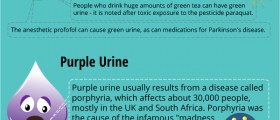
Escherichia coli or E. coli, named after Theodor Escherich, who was first to isolate the species of this genus, is a bacterium that, depending on the strain, causes a wide range of health issues, such as traveler’s diarrhea, cystitis, urinary tract infections, cholangitis, bacteremia and neonatal meningitis.
Urinary tract infections caused by E. coli, characterized, among other things, by the presence of the bacterium in urine, are among the most common types of E. coli infections.
E. coli urinary tract infections
The urinary tract is the most common site of E. coli infections in the human body. Furthermore, 90 percent of all urinary tract infections or UTIs are caused by uropathogenic strains of this bacterium. E. coli commonly causes a wide range of UTIs, such as cystitis, asymptomatic cystitis, urethritis, pyelonephritis and acute prostatitis. In sexually active women, the most common E. coli-caused UTI is cystitis or bladder infection, caused by the migration of the bacteria from the rectal after during sexual intercourse. In fact, women are generally more prone to all types of urinary tract infections, because of the way their urinary tract is structured. In men, UTIs are largely associated with prostate issues, especially after 60 years of age.
UTIs caused by E. coli are more frequent in patients who already have the bacterium present in the intestines, since it can easily migrate from there. These infections are also more common in people with certain anatomical abnormalities in the urinary tract, such as neurogenic bladder.
Urinary tract infections caused by E. coli are generally similar to UTIs caused by different pathogens or factors, and the symptoms usually include discomfort, pain or burning when urinating, frequent urge to urinate, even though there is little or no urine to pass, waking up at night to urinate, pain or tenderness in the pelvic area and sometimes blood in urine.
Treatment for E. coli urinary tract infections
In most cases, UTIs caused by E. coli clear on their own after some time. The problem is that they tend to reoccur. Many doctors prescribe antibiotics to kill the bacteria in urine and in the urinary tract, along with over-the-counter medication for the pain and discomfort.
That goes for uncomplicated UTIs and for mild cases. In more severe cases, supportive care, such as oxygenation and blood pressure support may be indicated.
Cholangitis and cholecystitis may require surgical drainage or decompression, while debridement, also surgical, is required in cases of presence of abscesses.

















Your thoughts on this
Loading...